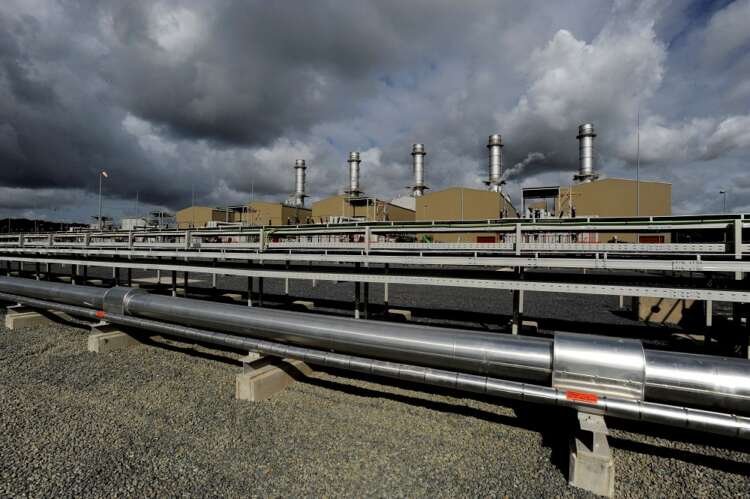Germany, EU race to fix energy crisis
Published by Jessica Weisman-Pitts
Posted on September 13, 2022
4 min readLast updated: February 4, 2026

Published by Jessica Weisman-Pitts
Posted on September 13, 2022
4 min readLast updated: February 4, 2026

By Christian Kraemer, Miranda Murray and Kate Abnett
By Christian Kraemer, Miranda Murray and Kate Abnett
BERLIN/BRUSSELS (Reuters) – Germany said on Tuesday it would step up lending to energy firms at risk of being crushed by soaring gas prices, as the European Union readied proposals to help households and industry cope with an energy crisis sparked by Russia’s invasion of Ukraine.
The European Commission is due to announce on Wednesday proposals including targets to cut electricity consumption and a revenue cap for non-gas fuelled plants. EU energy ministers will hold an emergency meeting on Sept. 30 to try and agree on them.
Separately, the EU’s securities watchdog is also considering measures to help energy firms struggling to meet rocketing collateral demands after they were caught out by the surging prices as Russia cut gas supplies to Europe.
The crisis is already weighing heavily on Europe’s economy, even before the onset of winter when industrial users could face rationing if gas reserves prove inadequate. Industry sentiment in the bloc’s economic powerhouse, Germany, has tumbled.
“Of course we knew, and we know, that our solidarity with Ukraine will have consequences,” German Chancellor Olaf Scholz said on Tuesday, urging Germans to brace for a tough winter and rise to the challenge of a shift in energy supply away from Russian gas.
“Let us tackle the task together!” Scholz said.
Germany’s finance ministry said it wanted to boost state loans for energy firms by using credit authorisations created to offer relief in the COVID-19 pandemic, with a German newspaper putting the value at 67 billion euros ($68 billion).
Last week, VNG, one of Germany’s biggest importers of Russian natural gas, became the latest energy firm to ask the government for aid to stay afloat.
The German cabinet is expected to approve draft legislation for the boosted credit funds on Wednesday.
RAFT OF EU PROPOSALS
At the EU level, a spokesperson for the European Securities and Markets Authority (ESMA) said on Monday the regulator was “actively considering” whether any regulatory measures were necessary to help support energy firms.
ESMA directly regulates clearing houses in the EU, which in turn set mandatory levels of margin based on potential risks from markets and counterparties. Public intervention in this area is rare, especially after the global financial crisis over a decade ago led to tougher margin requirements.
A draft of the European Commission’s proposals, seen by Reuters, would cap at 180 euros per megawatt hour the price at which wind, solar and nuclear plants could sell their power in the 27-nation bloc. It would also force fossil fuel firms to share excess profits.
Governments would be required to use the cash to help consumers and companies facing sky-high energy bills.
EU officials said, however, that plans for emergency liquidity support for power firms facing soaring collateral needs were still being drafted, and would likely be published later than Wednesday.
NO GAS PRICE CAP
Diplomats say there is broad support for a revenue cap for non-gas generators, as well as plans to impose electricity demand cuts. But countries are split over other ideas – including a gas price cap, which was not included in the draft Commission proposals.
The EU has also backed away from an earlier plan to impose a price cap on Russian gas. Countries including Hungary and Austria had opposed that idea in case Moscow retaliated by cutting off the dwindling supplies it still sends to the EU.
Meanwhile, investor sentiment in Germany fell further than expected in September as concerns over the country’s energy supply increasingly weigh on the outlook for Europe’s largest economy.
“The prospect of energy shortages in winter has made expectations even more negative for large parts of the German industry,” said Achim Wambach, president of the ZEW economic research institute.
Separately, Swedish utility Vattenfall said it had delayed the restart of the Ringhals 4 nuclear reactor by two months to Jan. 31, in a further setback to power supply in the Nordic and Baltic region.
“This worsens an already difficult power situation in southern Sweden,” power market analyst Tor Reier Lilleholt at Norway’s Volue said.
Meanwhile, the CEO of Ukrainian state energy firm Naftogaz said on Tuesday he hoped to restore production thanks to the recent military successes.
Naftogaz produces the lion’s share of Ukraine’s gas, with output totalling 13.7 billion cubic meters (bcm) in 2021.
(Writing by Ingrid Melander; Editing by Mark Potter)
The European Commission is the executive branch of the European Union responsible for proposing legislation, implementing decisions, and managing the EU's day-to-day operations.
A revenue cap is a regulatory limit set on the amount of revenue that a company can earn from its operations, often used to control prices and protect consumers.
Explore more articles in the Finance category
